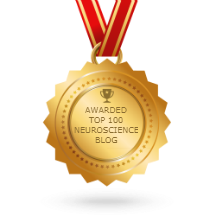-
26
May
Treatment’s promise moves beyond movement disorders
By Tom Valeo
Posted in The DANA Foundation’s BRAINWORK
Vol. 18, No. 3 | May – June 2008
Electrically stimulating the hypothalamus of a morbidly obese man failed to curb his appetite, but jogged his memory instead, and that has pushed researchers to study whether the technique may hold promise for bolstering the failing memory of people with Alzheimer’s disease. The incident, reported in January, adds to the list of brain disorders in which deep brain stimulation, or DBS, is being used or tested.

(Image courtesy of WedMD. Copyright © 2002 WebMD. Inc. All rights reserved)
In deep brain stimulation, a device similiar to a pacemaker is implanted in the chest and connected to electrodes placed in the brain. The technique has been approved as a treatment for Parkinson’s disease and is being tested for a variety of other uses.
At least 40,000 Parkinson’s patients have received DBS to quell the tremors and other symptoms of the disease. One study by German investigators found DBS so effective that they recommended it as the treatment of choice for Parkinson’s patients with severe symptoms no longer responsive to medication.
Memory Mystery
No one knows just how DBS makes a difference, but the dramatic effect that the procedure had on the obese man’s memory may provide a clue.
As soon as the stimulator, implanted under the skin of his upper chest, sent the first signals to the electrodes planted in his hypothalamus, the man reported a vivid sense of what he called “déjà vu.” He saw himself with friends in a park 30 years earlier. He heard them talking, although he could not make out what they were saying, and he saw his girlfriend at the time. When the voltage was increased, the scene became more vivid…
Read the full article in DANA’s BRAINWORK
- Published by Dimitrios A. Adamos in: Stories
- RSS feed subscription!

 Neurobot via RSS
Neurobot via RSS
